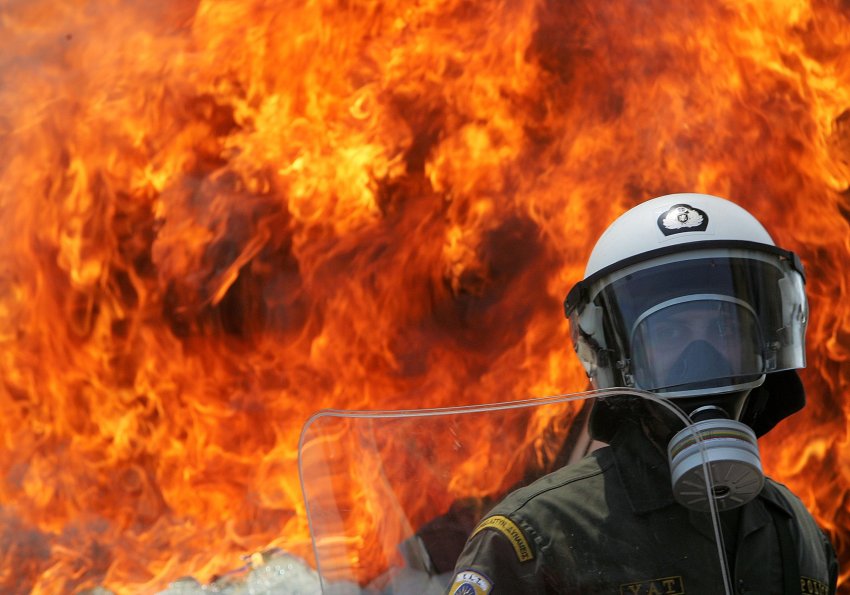
Switzerland launched the military exercise “Stabilo Due” in September to respond to the current instability in Europe and to test the speed at which its army can be dispatched. The country is not a member of the union or among the 17 countries that share the euro.
Swiss newspaper Der Sonntag reported recently that the exercise centered around a risk map created in 2010, where army staff detailed the threat of internal unrest between warring factions as well as the possibility of refugees from Greece, Spain, Italy, France, and Portugal.
The Swiss defense ministry told CNBC that it doesn’t not rule out having to deploy troops in the coming years.
“It's not excluded that the consequences of the financial crisis in Switzerland can lead to protests and violence,” a spokesperson told CNBC.com. “The army must be ready when the police in such cases requests for subsidiary help.”
Some 2,000 troops were part of the drill exercise in eight different towns across the country.
Some 2,000 troops were part of the drill exercise in eight different towns across the country.
Infantry soldiers were used as well as the Air Force and special forces personnel in an assignment that took years to organize.
Quoted in a Schweizer Soldat magazine, Defense Minister Ueli Maurer warned of an escalation of violence in Europe.
"I can’t exclude that in the coming years we may need the army," he said.
According to the minister, under pressure to save, some European countries didn’t renew their armies as they could no longer afford the upkeep of modern systems.
He said that the situation could amplify dramatically, with countries that couldn’t defend themselves facing the possibility of “blackmail.” In the paper, he also asked how long the crisis could be calmed with money alone.
Der Sonntag newspaper also reported that army chief André Blattmann is set to submit a proposal in December to utilize four battalions of military police. This will consist of 1,600 soldiers guarding strategic points in the country including the airport, industrial plants, and the international organizations in Geneva.
Quoted in a Schweizer Soldat magazine, Defense Minister Ueli Maurer warned of an escalation of violence in Europe.
"I can’t exclude that in the coming years we may need the army," he said.
According to the minister, under pressure to save, some European countries didn’t renew their armies as they could no longer afford the upkeep of modern systems.
He said that the situation could amplify dramatically, with countries that couldn’t defend themselves facing the possibility of “blackmail.” In the paper, he also asked how long the crisis could be calmed with money alone.
Der Sonntag newspaper also reported that army chief André Blattmann is set to submit a proposal in December to utilize four battalions of military police. This will consist of 1,600 soldiers guarding strategic points in the country including the airport, industrial plants, and the international organizations in Geneva.
Via: "CNBC"




No comments:
Post a Comment